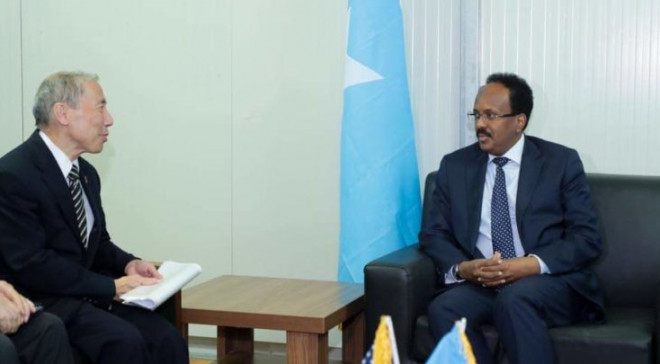Somalia has found itself in a situation that is very familiar – an election impasse. Despite hopes of a smooth transition of power and a new election model being implemented, multiple challenges faced the election, which was scheduled for 8 February 2021. However, these challenges are not new, and one has to wonder how Somalia has found itself in this situation again. Regardless of the outcome of the election impasse, the impacts thereof will have long lasting effects on Somalia’s democratic hopes.
Somalia’s presidential elections were scheduled to take place 8 February 2021, allowing for the nomination of a new president before the current president’s term ends. However, the vote never took place after a disagreement among the country’s leaders on how to hold the election. President Mohamed Abdullahi Mohamed, also known as Farmaajo, ended his term on 8th February 2021 with no elected successor, leaving a power vacuum. The situation is a familiar one, with the previous two presidents of Somalia having stayed in office beyond their constitutional terms. But how did Somalia end up here again and what does it mean for their fragile democracy?
Discussions surrounding the elections started in 2020, ahead of the original date in November 2020. In June 2020, the electoral commission of Somalia made the decision to delay the vote over “significant technical challenges”.
The precarious electoral system of the federal state also added to these challenges. Clan elders vote for a 51-member electoral college – this college then votes for 275 members for the House of People. 54 members are voted into the upper house, according to the representation of the federal state. The two houses then vote for the president from a list of candidates vying for the job. Citizens do not have a direct vote and have not since 1969. The perplexing system was created in response to the decades of civil war that plagued the country, resulting in the federal state system. It was predicted that once the transitional government was internationally recognized in 2012 that the traditional system would end, however, it has remained the rule of law.
These issues are also accompanied by infighting between the federal states. Two of the federal member states – Puntland and Jubuland – operate as semi-autonomous regions while Somaliland functions as a de facto independent state, however, Somalia does not recognize Somaliland’s self-proclaimed independence. Despite their semi-autonomy, Puntland and Jubaland still vote and have to agree to the electoral process.
During discussions held in September 2020, a new electoral model was introduced for the country to try and ease some of these challenges. The model aimed to hold elections at two locations within every state versus four for security reasons, representatives would be selected through collaboration with civil society, traditional elders and the state government, representatives in the upper house were to be selected by state parliament and members of both levels of parliament from Somaliland would be selected at Mogadishu. The model also aimed at increasing female representation through a 30% quota in both houses of parliament. However, Puntland and Jubaland refused to sign. Pressure was applied to the two regions and on 28th January 2021, they agreed to the electoral process. This is also not the first time the two regions have disagreed during election talks, the same occurred during the previous two elections.
Just a few days ahead of 8 February, and all signs point to a delay. Farmaajo convened an emergency meeting in Dhusamareeb, Galmudug on 2 February 2021 aimed at breaking the deadlock and preventing a constitutional crisis, despite certain concessions made now by Jubaland and Puntland.
The Dhusamareeb conference was the last hope for Somali leaders to reach an agreement and compromise for the prompt implementation of the 17 September electoral model.
As Abdirashid Hashi, an analyst at the Heritage Institute for Policy Studies in Somalia, noted by then: “Somali politicians know that they will either do what is needed or do the necessary. But they must do it fast and reach a compromise or they will become weaker and weaker. This foot-dragging has already weakened them. They only have a few days left to 8 February.”
As there have been delays in elections previously, the current parliament adopted a resolution to prevent any constitutional crises should a successor not be elected. The resolution allows all constitutional institutions, including the presidency, to remain in office until successors are elected and a handover can take place. The resolution may assist in avoiding a constitutional crisis; however, it does not fix the political crisis and mitigate the instability it has caused.
Despite the constitutional resolution, opposition leaders totally detested recognizing the president once his term ended. This is has remained the current feeling in Somalia, with an alliance of opposition parties calling for a transitional government to be put in place, kicking President Mohamed out. Opposition leaders stated they believe the president is an “existential danger to Somalia” and has disrupted the electoral process in order to keep himself in power.
The Opposition Members Sentiment
Some opposition leaders believe the president has a dictatorial nature and will do anything to hang onto power. Puntland’s and Jubaland’s leaders have gone as far as to say the leader has been stoking nationalism, as a way to collapse the federal system – a dangerous path to go down in a country where a civil war lasted for decades, leading to it being declared a ‘failed state’.
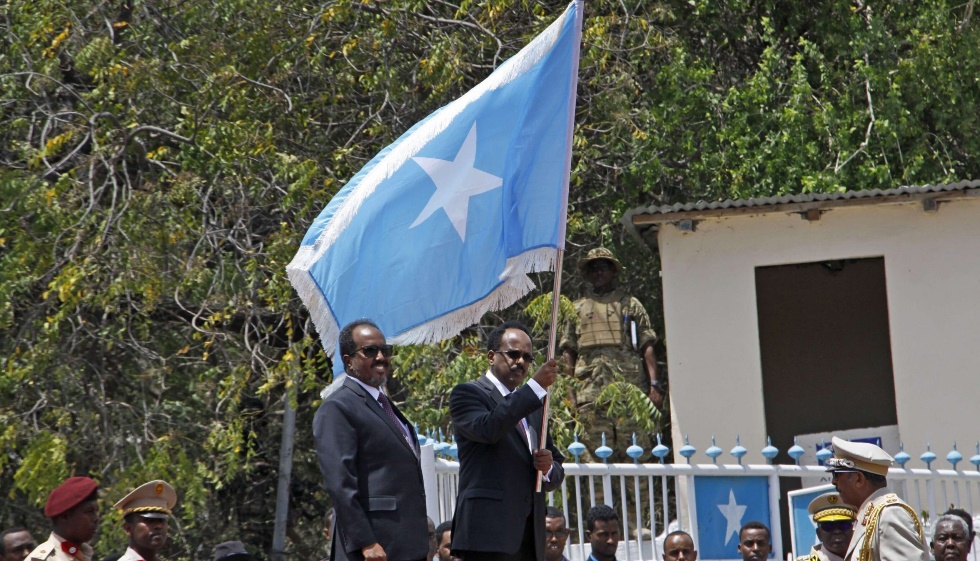
President’s Position
Farmaajo’s camp argues that because the two regional governments of Puntland and Jubaland are unwilling to negotiate holding elections, based on the September 17 agreement between the president and regional leaders, Parliament was forced to intervene. Leaders of Puntland and Jubaland deny this argument and accuse Farmaajo of dragging his feet on timely elections in order to extend his term.
Through his Ministry of Foreign Affairs, Farmaajo said the federal government of Somalia welcomes the AU to facilitate the talks. “With regards to Somalia’s efforts to hold peaceful, inclusive, and timely elections, (Farmaajo’s) government would welcome the role of the AU in facilitating a Somali-led and Somali-owned engagement process that would lead to dialogue,”
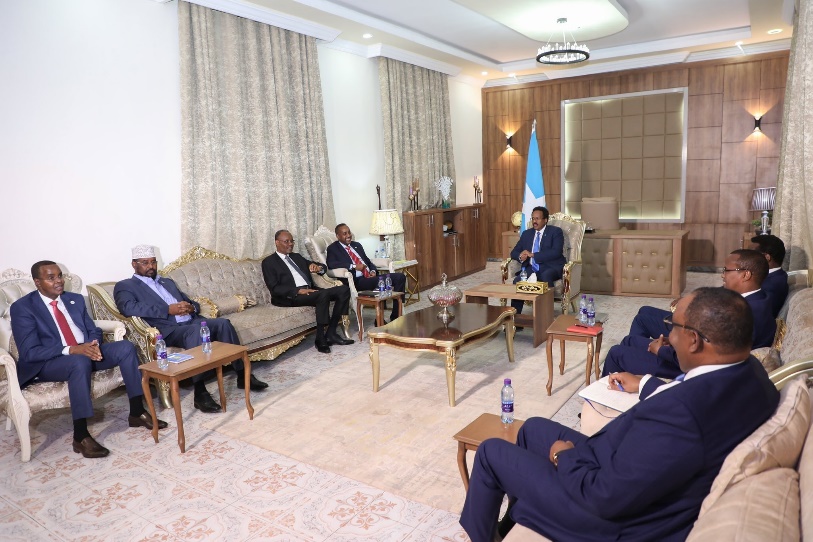
Tshisekedi’s office made a similar announcement.
The statement on Twitter said that after the two presidents met for two hours, Farmaajo requested Tshisekedi’s involvement in his capacity as president of the AU to facilitate negotiations with all the stakeholders involved in the Somali crisis. The statement said the talks between the two focused on political and security situations in Somalia. Tshisekedi’s office further said that the president of Congo welcomed Farmaajo’s initiative.
The International Community
The U.N. Security Council called on Somalia’s leaders to meet “at the earliest opportunity” to break the impasse delaying the holding of elections that had been scheduled for Feb. 8. The council said in a press statement after a closed briefing by U.N. special envoy James Swan that inclusive elections should take place “as soon as possible” in the interest of all Somalis.
The council called for the parties to resolve outstanding issues on the basis of an agreement reached last Sept. 17. This was the second appeal this month by the U.N.’s most powerful body for action to organize elections.
On March 12, the council urged the federal government and regional states “to organize free, fair, credible and inclusive elections” in accordance with the September agreement “without delay.”
British Ambassador Barbara Woodward, who called for the meeting along with other council members, said Swan told council that Somalia’s electoral process required “urgent attention.” She said the council very much welcomes Swan’s efforts “to bring the parties together and to proceed with elections as soon as possible, but without compromising.”
On 23rd March, 2021, the Spokesman for UN Secretary-General António Guterres issued a statement. “The Secretary-General reiterates his deep concern at the continued political impasse regarding the holding of elections in Somalia, despite several rounds of consultations amongst Somali political actors, both at technical and principal levels. The protracted stalemate carries significant risks for the stability of the country and the welfare of the Somali people, who are already facing a dire humanitarian situation and precarious security conditions.
The Secretary-General urges the Federal Government of Somalia and all federal member state leaders to engage in dialogue and hold the planned summit urgently and without preconditions to resolve their differences on the electoral process and reach consensus on the way forward. He welcomes the commitment of Somali leaders to the 17 September electoral model and calls on them to agree quickly on its swift implementation and the holding of elections without further delay.
Turkey’s stake in Somalia
On Friday 29 January, Somalia’s international partners came together and released a statement supporting recent political developments. They see such compromises as a positive step towards the implementation of the 17 September electoral model. The pressure from global partners has pushed Somalia’s politicians to compromise.
At the end of their statement, the international partners were listed, but Qatar was not among them, though the small kingdom is a supporter of Somalia’s political processes. But, unsurprisingly, Turkey was listed among the partners urging for dialogue to solve the election impasse.
Turkey is a major investor in Somalia and hosts thousands of Somali migrants.
It is a key foreign development partner and remains a quiet influencer in Somali politics.
The Somalia Lower House Bombshell
While efforts were still being made to try find a solution over the impasse, the lower house took another step in the direction that different parties have so far held different perspectives.On Monday 12th April, 2021, Somalia’s lower house of parliament voted to extend the president’s mandate which expired in February after months of deadlock over the holding of elections in the fragile state claiming that it will provide the country ample time to implement the earlier envisioned electro system. “One person, one vote law which was unanimously passed by parliament” In two years, the legislators say Somalia should be ready to hold universal suffrage, a type of elections the country hasn’t held in 50 years.
Late on Tuesday night the information minister announced that the president had signed the direction of one person, one vote law which was unanimously passed by parliament on April 14,”
Objection
However the speaker of the Senate slammed the move as unconstitutional, and the resolution was not put before the upper house, which would normally be required, before being signed into law.
Speaker Abdi Hashi Abdullahi said it would “lead the country into political instability, risks of insecurity and other unpredictable situations”.
A coalition of opposition presidential candidates said in a joint statement that the decision was “a threat to the stability, peace and unity” of the country.
Opposition group, the National Salvation Forum, warned on Tuesday evening that the term extension was a threat to Somalia’s peace and security.
“The Forum, in consultation with various sections of the Somali society, will take necessary steps against unconstitutional term extension and take measures to find a solution for the transitional period,” the Forum, which brings together 15 presidential aspirants and leaders of Jubbaland and Puntland states, said in a statement.
On 22nd April, 2021, Puntland dismissed the extension of the presidential term and declared the bill adopted into a law by the lower house of parliament as illegitimate. The state government called for the resumption of dialogue. The state parliament voted against the resolution after the clan elders had dismissed it.
Meanwhile, the term extension created tension in Mogadishu among members of the Somali security forces. Former commander of the Mogadishu police forces Sadik Omar Hassan, who was sacked a week later after he opposed the extension, camped in a neighborhood inhabited by his clan in the southwestern parts of Mogadishu. Lawmakers representing his clan urged the federal government not to attack him.
Hassan Hundubey Jimale, security minister of the Somali federal government, told the media that the government had no plan to attack him.
According to observers, the standoff between the security forces created fear among residents in the capital of a potential return to an armed rivalry between political stakeholders
Donors reject extension of Farmaajo’s term
In a series of coordinated statements, the US, UK and the European Union said they will consider “changing” the nature of relations with Somalia, falling short of threatening sanctions. US Secretary of State Antony Blinken said the United States will “re-evaluate” bilateral relations with Somalia if the President forces through the extension. “We have also made it clear that the United States does not support mandate extensions without broad support from Somalia’s political stakeholders, nor does the United States support parallel or partial electoral processes. “Implementation of this bill will pose serious obstacles to dialogue and further undermine peace and security in Somalia. It will compel the United States to re-evaluate our bilateral relations with the Federal Government of Somalia, to include diplomatic engagement and assistance, and to consider all available tools, including sanctions and visa restrictions, to respond to efforts to undermine peace and stability.”
The motion to extend the President and legislators’ mandate was endorsed by 149 MPs in a House of 275. It was not tabled before the Senate as is tradition and President Farmaajo promptly endorsed its passage. It went against the call by donors, partners and opposition groups; all of who opposed term extension.
“The European Union believes that the passage and signing of this resolution will divide Somalia, impose additional delays and constitute a grave threat to the peace and stability of Somalia and its neighbours. It certainly does not serve the interests of the people of Somalia,” said Josep Borrell, the EU High Representative. “We call for an immediate return to talks on the holding of elections without delay based on the September 17 agreement. Failing this, the EU will consider further concrete measures.”
Earlier, donors seemed to face a dilemma on how to react to the move by the country’s Parliament to extend Farmaajo’s mandate. The immediate question was whether the decision of the Lower House alone could extend the mandate of a President elected in a joint bicameral sitting in 2017.
The motion also effectively shut down talks on how to conduct indirect elections as agreed on earlier, crossing one of the red lines established by donors on the electoral model. “This is not a solution to the ongoing impasse on the electoral process, but instead a move that undermines the credibility of Somalia’s leadership and risks the safety and future of the Somali people,” said James Duddridge, UK’s Minister for Africa.
“In the absence of consensus leading to inclusive and credible elections being held without further delay, the international community’s relationship with Somalia’s leadership will change. The UK will work with its international partners on a common approach to re-evaluate our relationship and the nature of our assistance to Somalia.”
The European Union supports the rejection of any mandate extension and looks forward to a prompt return to negotiations, facilitated by an African Union envoy, to achieve consensus for elections, based on the agreement of 17 September 2020. The EU also welcomes the call for a Troop Contributing Countries (TCC) meeting to assess the security situation in Somalia.
The EU stands ready to cooperate closely with the AU envoy and, meanwhile, appeals for calm and the avoidance of any further action that might exacerbate tension.

The Federal Government Insists
Somalia’s Federal Government says it will stick to the decision of the country’s Parliament to extend the mandate of the President and legislators, in spite of global condemnations.
A statement issued on 21st Wednesday night indicated that Mogadishu’s willingness to defy what they see as threats from its main donors. Somalia called for support rather than criticism after President Mohamed Farmaajo assented to a bill to effectively delay elections by two years.
President Farmaajo said it “restored power to the people” and warned against outside manipulation.
Somalia’s Foreign Affairs ministry said, “The decision was broadly supported by key stakeholders in the country, including the Federal Government, Benadir Regional Administration and three out of five federal member states, namely Hirshabelle, Galmudug and South West. We urge our friends and allies to continue their constructive support.”
“The FG [Federal Government of Somalia] stands by the decisions made by the Federal Parliament and remain committed to implementing free and fair elections in the country within the stipulated timeframe,” it said in a statement.
The position was an open defiance to a call by main donors who rejected the extension of President Farmaajo and MPs’ terms, saying the move that could undermine the country’s stability.
.
Somalia’s president backed down from his attempt to extend his term. However, as there is no clear path towards elections, the country could endure further turmoil.
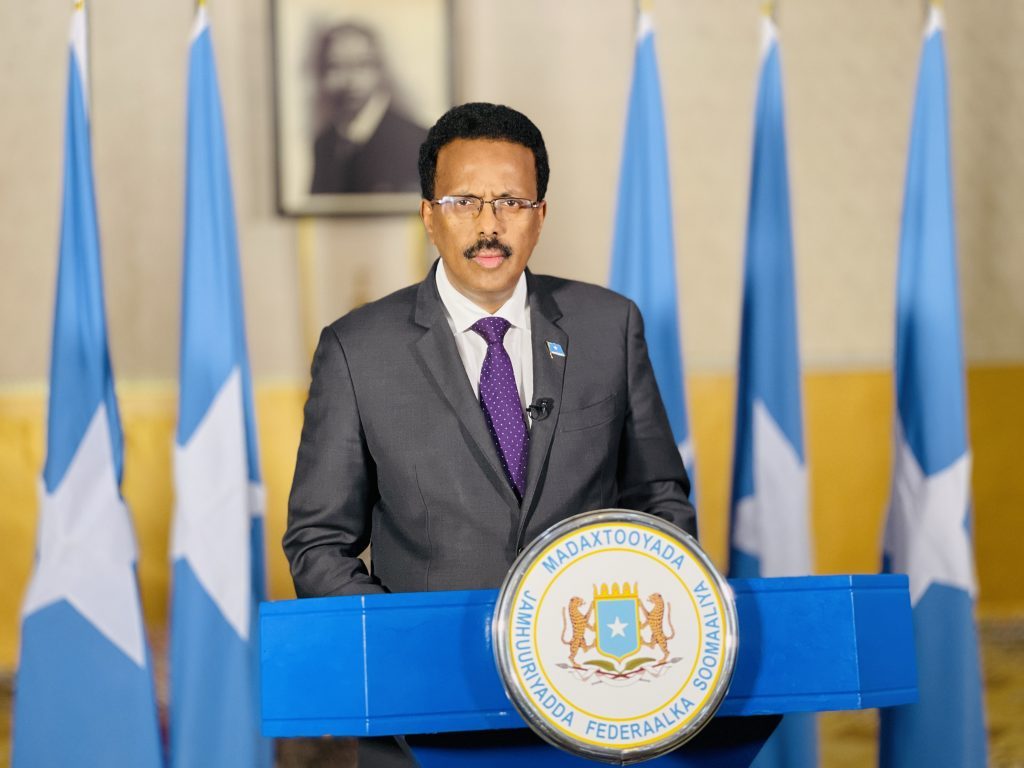
As clan militias recently took to Mogadishu’s streets in preparation for battle with government forces, Somalia braced itself for conflict. The tensions began after President Mohamed Abdullahi Mohamed “Farmaajo” attempted to extend his term by two years.
On April 29, the president backtracked on his plans and announced elections would eventually be held, though they were initially scheduled for February 8, per a September 2020 agreement.
“As we have repeatedly stated, we have always been ready to implement timely and peaceful elections in the country,” said Farmaajo in a speech on state television that day.
“But unfortunately, our efforts were hampered by individuals, and foreign entities who have no aim other than to destabilize the country and take it back to the era of division and destruction in order to create a constitutional vacuum,” added the president.
It appears Somalia’s president has succumbed to domestic pressure, as the senate, Prime Minister Mohamed Hussein Roble, some opposition leaders, and four of the country’s six federal member states – including Puntland and Jubaland – rejected his move to extend his term. Condemnation from external powers, including the United States, the European Union, and the African Union, also forced him to think twice.
Then, on May 1, Mogadishu’s Lower House of parliament unanimously voted to hold indirect elections, further raising hopes that the deadlock would break.d.
Yet, despite President Farmaajo’s announcement of forthcoming elections and the favorable parliament vote, divisions have not subsided, and there is still no clear path towards elections. The president blamed his opponents for politicizing the dispute and accused some security forces of trying to grab power. Fears have risen that Somalia could face a return to the violence that plagued the country after 1991, when strongman Siad Barre’s regime was overthrown.
Indeed, clashes between soldiers loyal to the government and opposition groups erupted on April 25, with some militias taking control of districts in Mogadishu. Gunfire was heard across much of the city, although there were no casualties. A few hundred demonstrators also chanted “We don’t want dictatorship,” as they burned the president’s photo.
“We cannot accept another Siad Barre,” one of the renegading soldiers said.
The UN reported on April 28 that the violence had forced between 60,000 and 100,000 people to flee their homes.
“Apart from displacing innocent civilians, the initial violence has created uncertainty and fear of disruptions of humanitarian assistance to hundreds of thousands of vulnerable people across the city,” said the UN’s acting Humanitarian Coordinator for Somalia, Cesar Arroyo.
However, clashes between rival forces have calmed since Farmaajo’s announcement and will likely continue to subside while talks for a political solution convene.
Dr. Mohammed Ibrahim-Shire, a lecturer at the University of Portsmouth, told Inside Arabia that although the extension has exacerbated tensions within Somalia, it has not done so “in a way that led to the collapse of the country’s security apparatus and security forces being split along clan lines.”vents.”
“Somalia’s security forces have maintained incredible cohesion in the face of polarizing events. It is just unfortunate that some media outlets have construed clan militias as security forces. Clan militias have been a defining feature of Somalia for decades and many can’t seem to differentiate between these two groups.”
He added that despite the surface tensions, the dispute is mainly between political factions, as opposed to civilians voicing their displeasure at the events.
“Moreover, the majority of Mogadishu residents demonstrated an indifferent attitude,” Ibrahim-Shire said. “Many have experienced decades of civil conflict since the State collapse in 1991 and consequently have largely avoided joining sides and heightening tension. This deliberate choice had a remarkable effect on the overall stability of the country.”
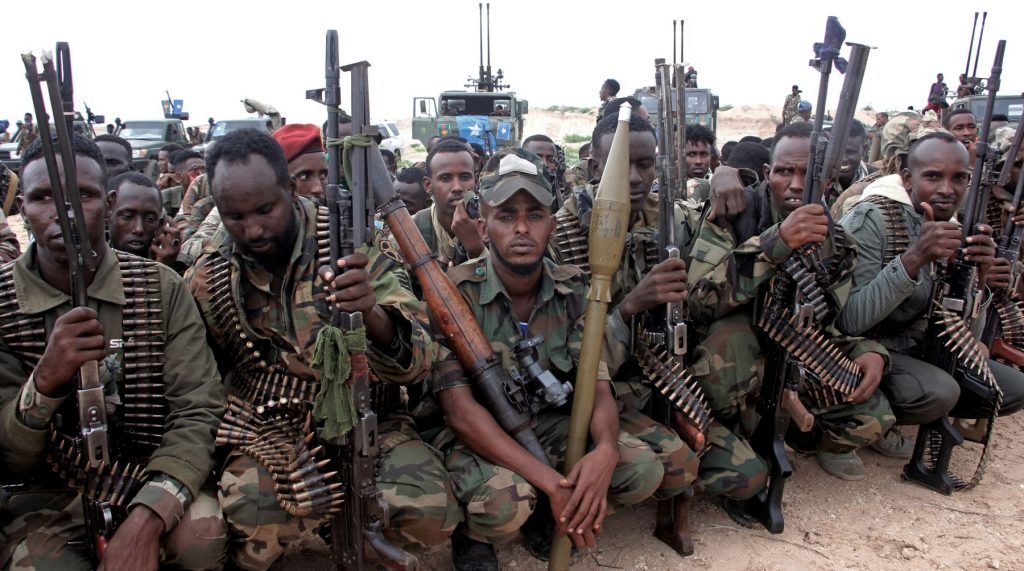
Military forces supporting anti-government opposition groups display their weapons in Mogadishu, Somalia Friday, May 7, 2021. (AP Photo/Farah Abdi Warsameh)
Analysts have considered that new elections are the only possibility to end Somalia’s deadlock, and to prevent further violence from erupting. The international community’s reaction will be crucial, given that the widespread condemnation of Farmaajo’s attempts to retain power prompted him to reverse his decision.
US Department of State Spokesperson Ned Price said in a statement on April 26 that Washington stands ready “to consider all available tools.”
“The United States is gravely concerned by the violent clashes [on April 25] in Mogadishu. We call on all parties to exercise restraint and to resolve their differences peacefully,” Price added.
The United Nations Assistance Mission in Somalia (UNSOM) also voiced its concerns, saying it has “repeatedly warned that the extension of mandates would lead to a political crisis and undermine peace, stability, and security in Somalia.
Both the United States and the European Union also threatened Somalia’s government with sanctions should it fail to resume talks over the deadlock. The EU’s Foreign Policy Chief, Josep Borrell, also warned of “concrete measures” should there be no immediate return to talks on holding elections.
Meanwhile, some regional countries have shown concern as well. Turkey welcomed the decision to hold elections. Ankara has established strong ties with Mogadishu’s central government, and added it stands by the “friendly and brotherly” Somali people.
“However, the UAE has been suspiciously silent about the extension,” added Ibrahim-Shire. “Perhaps this is attributed to the fact that the Somali government has called out the UAE in late February for its direct interference in Somalia’s internal affairs.”
The UAE has faced cold relations with Somalia’s central government, owing to Mogadishu’s siding with rivals Turkey and Qatar, and its opposition towards the UAE’s port building operations in the autonomous region of Somaliland. While there is no indication of any Emirati involvement in the latest events, Abu Dhabi may be keeping a close eye on them, given its past support for opposition figures in Somalia.
In the meantime, external and internal pressure has clearly hindered Farmaajo’s efforts to stay in power. International powers could now play a proactive role by supporting a domestic solution, rather than pursuing the threat of sanctions.
Prime Minister Rooble Opens the Negotiations
Somali leaders began negotiations Saturday aimed at organizing new elections after the postponement of recent polls sparked one of the country’s worst political crises in years.
Those talks, due initially to have started on Thursday, finally began Saturday as Roble met with the leaders of Somalia’s five semi-autonomous states and the mayor of Mogadishu in a tent erected at the city’s airport.
Sources at the meeting said the talks opened amid tight security with African Union Mission in Somalia (Amisom) peacekeepers and local police deployed in force.
“The national consultative conference on the elections opened today between the Federal Government and the Federal Member States,” government spokesman Mohamed Ibrahim Moalimu said in a statement.
“All of the leaders who will attend the forum are present now and the prime minister is chairing the conference.”
The preliminary nature of the talks means they will first address ongoing sources of tension, including the composition of the electoral commission and poll security, sources told AFP.
Only thereafter will “finalization” of poll logistics, including an actual date, be decided, they added, with no indication of how long the talks will last.
A lack of support for a fair solution may otherwise spell more disaster for a country that has already endured much division and difficulty.
Reaching an Agreement
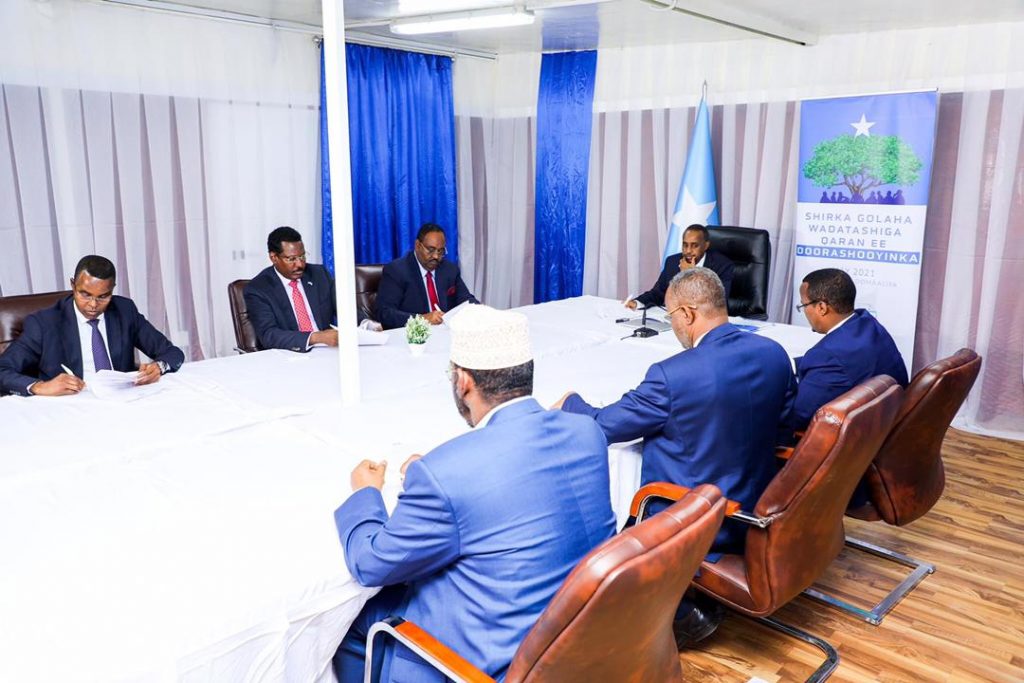
Somalia’s political leaders have reached an agreement that will pave way for elections, its foreign affairs minister said on Tuesday, ending months of deadlock that at times turned violent.
“We have now reached an agreement that will lead Somalia to free and fair elections. Going forward Somalia needs to have a predictable transition based on elections that is inclusive, credible, free and fair,” Abdirizak Mohamed said during a U.N. meeting on Somalia.
“This is a challenge and opportunity which the Somali people, government and partners must capitalise to ensure sustainable development and country.”
Foreign Minister Mohamed said among the sticking points resolved was the formation of an election committee, whose absence had prevented the election of new legislators in December.
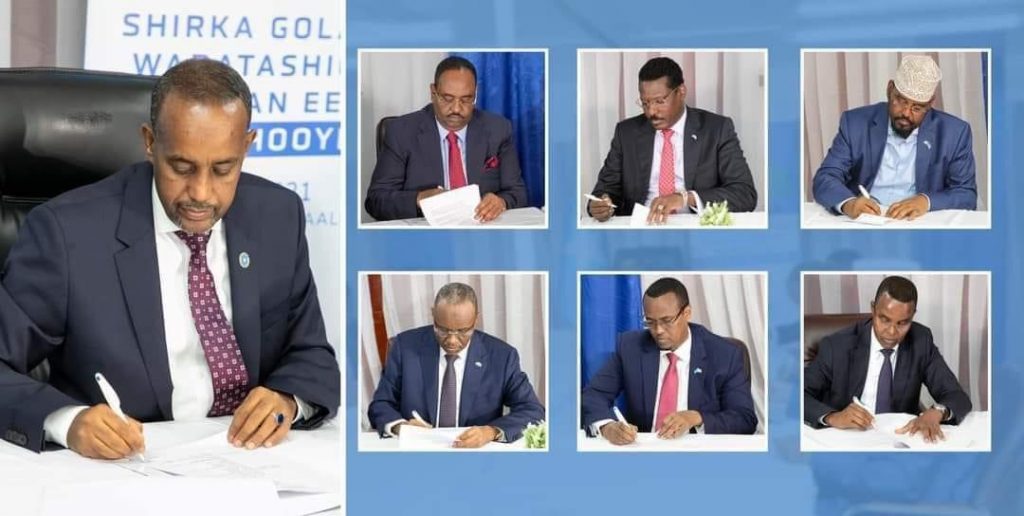
MOGADISHU (Reuters) -Somalia’s Prime Minister Mohamed Hussein Roble and regional state presidents have signed an agreement to allow elections to take place after an impasse that had held them up for months, the state-run broadcaster said on Twitter.
Clan elders were meant to have selected lawmakers in December, who in turn were due to elect a new president on Feb. 8. Both procedures failed to take place, amid disputes over a number of issues including the composition of an election commission which would supervise the voting.
“The prime minister and state leaders signed the election agreement,” Somalia News Agency said on Twitter. It gave no details of the agreement itself, nor of any new schedule for the elections.


